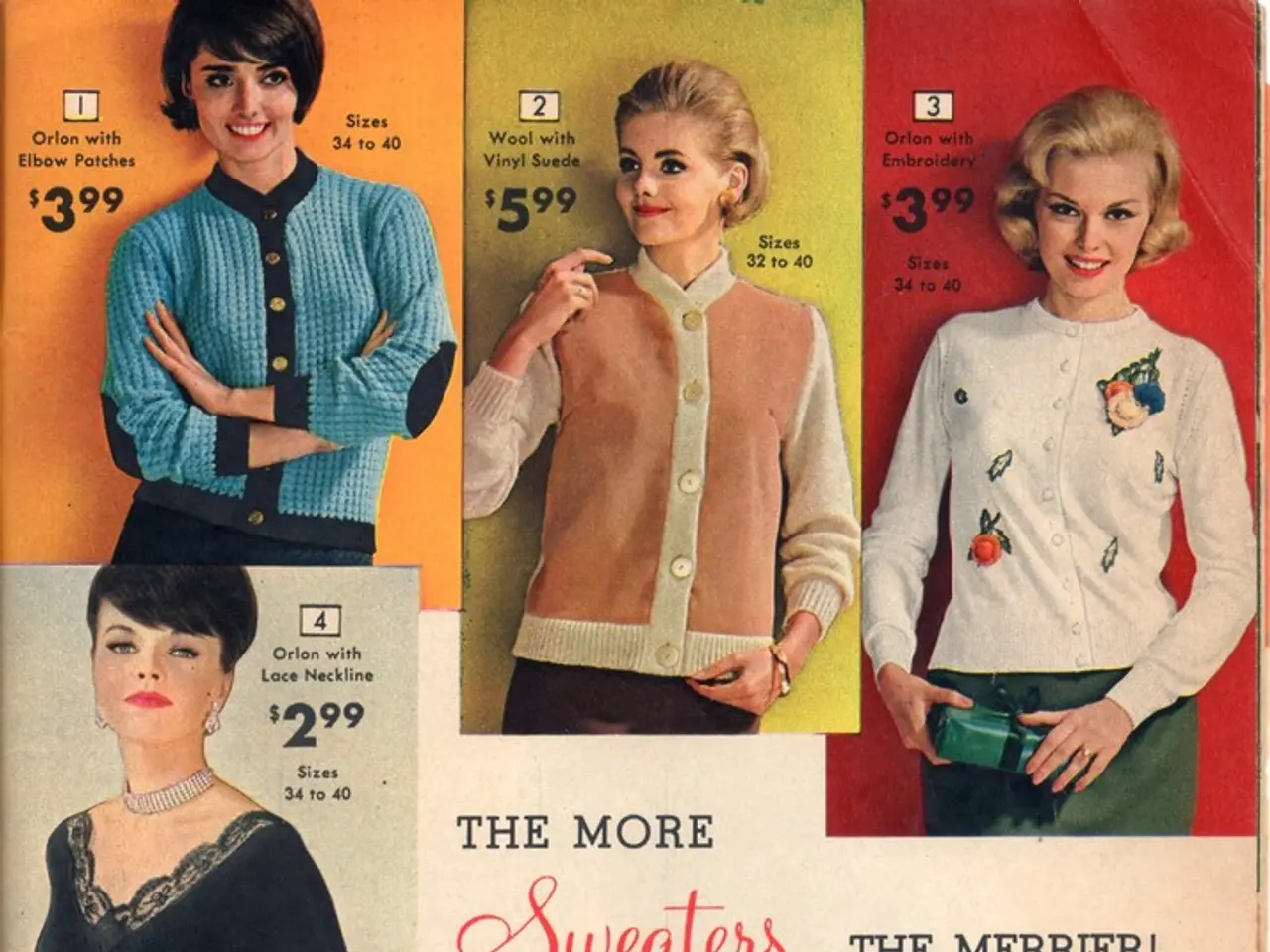Preserving Luxury Fashion's Worth in the Digital Realm
=========================================================================
In the ever-evolving world of fashion, the luxury sector is undergoing a significant transformation. The LVMH Prize, an annual competition celebrating emerging designers, has been a prime example of this shift, known as the phygital movement. This movement signifies a seamless integration of physical and digital experiences, a crucial step for luxury brands to preserve their value in the digital age.
The LVMH Prize serves as a platform for innovation in fashion, having nurtured talents like Virgil Abloh and Jacquemus. The competition's digital showrooms have driven significant engagement, with a 35% increase in followers and a staggering 400% surge in votes over the past four years.
Luxury fashion brands are maintaining the value of their physical luxury experiences and justifying their price points in the digital space by blending high-touch personalization, exclusivity, and heritage-rich storytelling with innovative digital tools. This approach translates the unique, premium in-store experience online while preserving the brand’s prestige and rarity.
Key strategies include hyper-personalization using AI, augmented reality and virtual try-ons, curated digital content and exclusivity, strategic pricing as prestige signaling, sophisticated social media use, omnichannel seamlessness, aligning with values, and the creation of unforgettable digital experiences.
Brands like Dior, Gucci, Chanel, Dolce & Gabbana, LVMH, and Carolina Herrera are leading this transformation. Dior, for instance, uses AI to replicate the personalized boutique client experience digitally, offering tailored recommendations and real-time engagement that feels authentic and attentive rather than automated. Gucci invests heavily in AR tools that allow customers to visualize products in real life digitally, merging physical and digital experiences to enhance consumer confidence and engagement.
Chanel focuses on high-emotional-value digital campaigns, maintaining an aura of exclusivity and prestige that aligns with the brand’s legacy. Luxury pricing remains a deliberate tactic to convey rarity, superior craftsmanship, and exclusivity, justifying high price points by reinforcing the product’s enduring value and status symbolism beyond mere functionality.
Luxury brands leverage platforms like Instagram and TikTok not for volume but to share behind-the-scenes stories, craftsmanship insights, and celebrities wearing the brand, all while carefully maintaining a refined, elite image. Brands like Gucci demonstrate mastery by integrating online and offline experiences, maintaining customer loyalty programs that work cohesively across physical stores and digital platforms to keep the luxury experience consistent and premium.
Especially for younger consumers (Gen Z), luxury brands increasingly emphasize ethical manufacturing and social responsibility, which is communicated through digital channels to maintain relevance and justify their premium positioning in a values-driven marketplace.
The success of the LVMH Prize's digital showrooms demonstrates that virtual experiences can enhance, rather than dilute, a brand’s luxury value when done right. The challenge in the phygital shift is maintaining the sense of luxury in a virtual space. The work of Feels Like, a studio that develops human-centered digital interfaces for brands like LVMH, VALENTINO, Loro Piana, and Carolina Herrera, serves as a blueprint for how luxury fashion brands can use virtual experiences to stay relevant in a digital-first marketplace without losing their essence.
By using technology to expand their reach, luxury brands can maintain their premium positioning and offer tailored experiences that make every customer feel special, regardless of their geographic location. The phygital transformation of luxury fashion is essential for preserving the perception of value that underpins the entire industry.
- In the realm of fashion and beauty, technology plays a significant role in the phygital movement, which seeks to seamlessly integrate physical and digital experiences, a strategy adopted by luxury brands like LVMH, Dior, Gucci, Chanel, and others.
- Marketing and advertising in the luxury sector are undergoing a transformation, with brands leveraging digital tools such as AI, augmented reality, and virtual try-ons to offer hyper-personalized experiences, curated digital content, and exclusive access.
- Brands recognize the importance of media platforms like Instagram and TikTok not just for volume but for sharing behind-the-scenes stories, craftsmanship insights, and celebrity endorsements, while maintaining a refined, elite image.
- Fashion brands are increasingly focusing on consumer behavior, particularly among younger generations like Gen Z, by emphasizing ethical manufacturing and social responsibility, communicating these values through digital channels to maintain relevance and justify their premium positioning in a values-driven marketplace.




